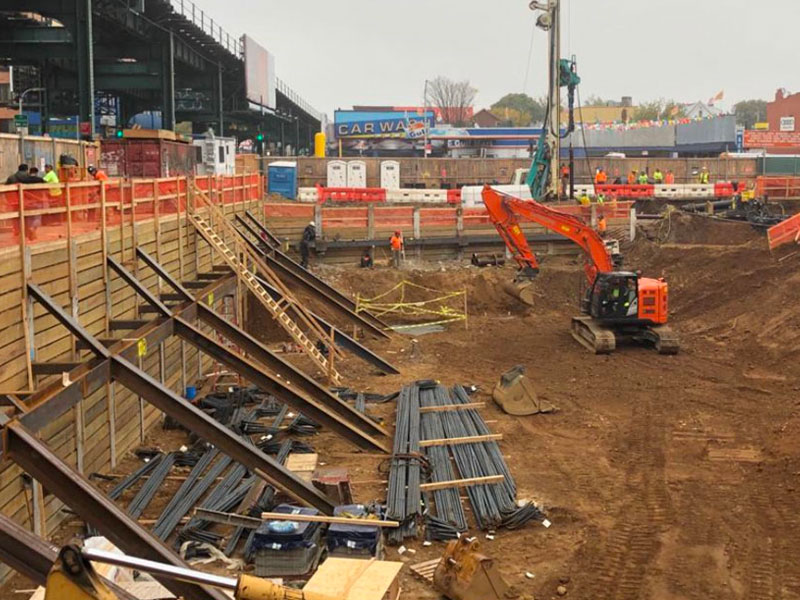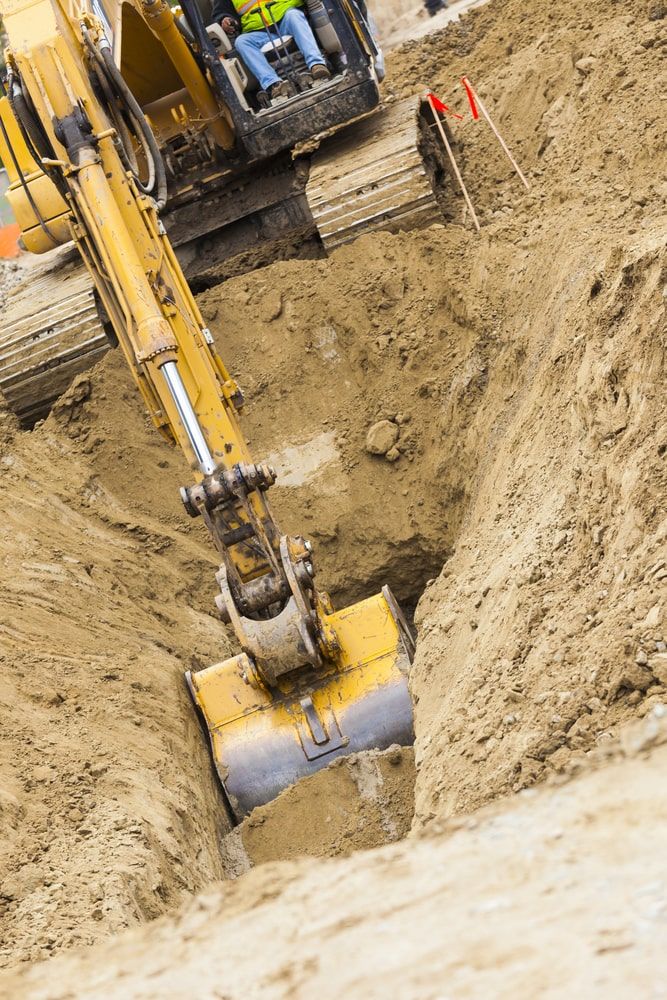Excavating Ohio - Leading Excavation Professionals for Ohio Projects
Excavating Ohio - Leading Excavation Professionals for Ohio Projects
Blog Article
Comprehensive Excavation Techniques: Grasping the Fundamentals for Success
The mindful preparation, specific implementation, and meticulous interest to information required in excavation jobs require a thorough approach that encompasses various essential elements. The true proficiency exists not just in recognizing these fundamentals but in seamlessly integrating them to browse the intricacies of excavation tasks with finesse.
Recognizing Excavation Project Preparation

The initial phase of any type of excavation job is the preparation phase, where crucial decisions are made that can substantially influence the outcome of the project. Recognizing the job budget plan, scope, and timeline constraints is essential for producing a comprehensive excavation strategy that ensures the project's success.
One trick facet of excavation job planning is the growth of a comprehensive timeline that details the series of turning points, tasks, and target dates. This timeline works as a roadmap for the project group, allowing them to track progress and make essential changes to make sure the task remains on schedule. In addition, a well-defined budget that represents all expenses, consisting of equipment leasing, labor costs, and materials, is important for preventing price overruns and hold-ups. By carefully taking into consideration all these factors during the preparation stage, excavation projects can be carried out efficiently and successfully, causing effective outcomes.
Dirt Evaluation and Site Examination
Performing extensive soil analysis and website examination is a critical action in the preparation stage of any kind of excavation task. Dirt evaluation involves identifying the structure, structure, and residential properties of the dirt at the excavation site. This info is crucial for comprehending the dirt's bearing capability, dampness web content, and possibility for erosion, which are essential variables in establishing the excavation methods and equipment required for the project.
Site examination goes beyond soil evaluation and encompasses a broader analysis of the general site problems. This evaluation includes recognizing any kind of prospective dangers, such as underground utilities, ecological concerns, or unsteady terrain, that can impact the excavation procedure. By completely assessing the website, job supervisors can establish effective excavation methods that focus on safety, efficiency, and environmental management.
Utilizing sophisticated innovations like ground-penetrating radar, soil sampling, and drone studies can boost the precision and efficiency of soil evaluation and website examination. Spending time and resources in these preliminary steps can eventually save time and avoid pricey hold-ups or complications during the excavation process.
Tools Selection and Application
Effective excavation tasks count greatly on critical devices option and utilization to ensure optimum performance and productivity. Choosing the right devices for the work is essential in making best use of performance and minimizing downtime. Elements such as the sort of soil, deepness of excavation, and task scope play a significant function in figuring out the most ideal equipment for the job available.

Along with choosing the proper tools, appropriate utilization is crucial to project success. Operators has to be educated to take care of the tools securely and successfully - lancaster trenching. Regular maintenance checks and prompt repair services assist prevent breakdowns and ensure regular efficiency throughout the task
Safety And Security Procedures and Regulations Conformity
In the realm of excavation jobs, focusing on precaution and compliance with policies is critical to making certain a legally audio and secure operational setting. Safety measures include a variety of methods, consisting of conducting extensive website assessments, implementing appropriate signs and barriers, and supplying ample safety and security training for all employees involved in the excavation process. Adherence to regulations, such as OSHA requirements in the USA, makes sure that the excavation task satisfies the required requirements to protect employees, onlookers, and the surrounding setting.

Tracking Development and Adjusting Strategies
How can predict managers efficiently track the improvement of excavation tasks and adjust their strategies appropriately to enhance results? Tracking development is essential for ensuring that excavation projects remain on track and meet target dates. Job managers can make use of numerous tools and techniques to track progression, such as everyday look at this now development records, regular website assessments, see this and progressed tracking innovations like drones and general practitioners tracking systems. By continually checking the project's innovation, managers can determine any type of potential delays or problems early on and take positive measures to resolve them.

Verdict
Finally, mastering the fundamentals of detailed excavation strategies is necessary for the success of any project. By understanding job preparation, examining soil and site problems, selecting appropriate tools, complying with safety guidelines, and monitoring progression, project supervisors can make sure a smooth and efficient excavation process. Implementing these methods will lead to successful outcomes and reduce potential risks or troubles throughout the excavation job.
The preliminary stage of any kind of excavation project is the preparation stage, go now where essential choices are made that can substantially impact the outcome of the task. Understanding the project extent, spending plan, and timeline restrictions is critical for producing a thorough excavation strategy that makes certain the project's success.
Exactly how can project managers successfully track the advancement of excavation tasks and adjust their strategies appropriately to enhance outcomes? By carefully checking progress and being willing to adapt techniques, task supervisors can improve the total success of excavation projects.
By recognizing project planning, evaluating soil and website problems, selecting ideal devices, conforming with security regulations, and keeping track of progress, job managers can ensure a smooth and efficient excavation procedure.
Report this page